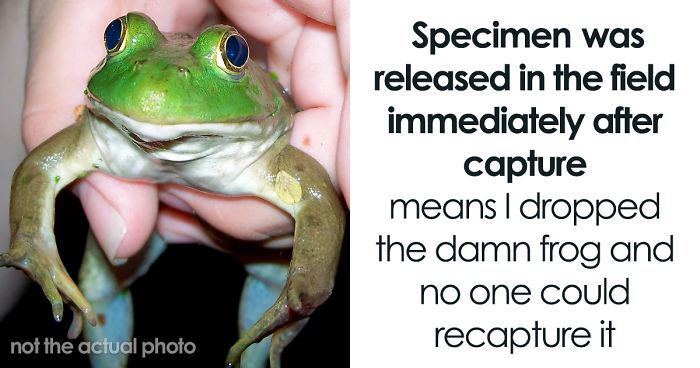
Scientists Reveal How They Use Academic Language To Mask Their Mess Ups And It’s Hilarious
I think it’s safe to say that very few of us read scientific research reports. To enjoy such a text, you not only have to understand what it’s about but the language it’s written in as well. Academics are fluent in using the most difficult words to explain the simplest things and they’re using the most complex sentence structures to practice it. But speaking the academic language isn’t that mind-numbingly boring. Turns out, a lot of scientists are publishing funny stories, they’re just written in code so no one outside the field would understand and ridicule them. But sharing is caring. And a few of them have broken their silence revealing the fails they’ve hidden under all of that confusing grammar. Thanks, tumblr.
According to California State University, Northridge, the academic language includes, for example, discipline-specific vocabulary, grammar and punctuation, and applications of rhetorical conventions and devices that are typical for a content area (e.g., essays, lab reports, discussions of a controversial issue.) They agree that in order to master it, learning objectives should focus on language as well as on content. “Some language demands are related to text types, which have specific conventions with respect to format, expected content, tone, common grammatical structures (e.g., if…, then…), etc. The language demands of other tasks are not as predictable and may vary depending on the situation,” they write.
Image credits: Jo Naylor
Image credits: National Center for Advancing Translational Sciences
But how does one develop academic language? The California State University, Northridge say there’s no one way to go about it.”For text types, it is important to make the conventions explicit, often providing graphic organizers when students are first learning how to produce the text type,” they write. “For less predictable language tasks, students need to understand the nature of the task and the range of possible responses and associated language. When students are just learning to use a particular form of academic language, they will need more scaffolding and support. For example, an English teacher trying to develop students’ abilities to follow up on a student comment might invite students to brainstorm different types of responses (e.g., agreement with elaboration, agreement with qualification, disagreement) together with some typical sentence starters or grammatical structures for each type of response.”
Here’s what people said about this thread
143Kviews
Share on FacebookWhat's acedemic for "It startled me so I screamed and it jumped off the table"
Specimen caused unwarranted reaction before escaping experimental space
Load More Replies...I wonder what academic for “I accidentally spilled the chemicals on the workbench” is. Sincerely a chemistry student
The chemicals went through an adverse reaction. (pretty much anytime something bad happens, the correct term is "adverse reaction")
Load More Replies..."In order to estimate a suitable height of the platforms in the VR environment, a pretest was performed with a focus group" = I asked a bunch of colleagues if they thought I'm good to go. "Due to inconclusive existing literature, we adhered to the standard procedure" = all three papers I found had wildly differing approaches and I couldn't read the other 15 because I hit a paywall, so we used the standard procedure, based on oral tradition and unspoken customs.
What's acedemic for "It startled me so I screamed and it jumped off the table"
Specimen caused unwarranted reaction before escaping experimental space
Load More Replies...I wonder what academic for “I accidentally spilled the chemicals on the workbench” is. Sincerely a chemistry student
The chemicals went through an adverse reaction. (pretty much anytime something bad happens, the correct term is "adverse reaction")
Load More Replies..."In order to estimate a suitable height of the platforms in the VR environment, a pretest was performed with a focus group" = I asked a bunch of colleagues if they thought I'm good to go. "Due to inconclusive existing literature, we adhered to the standard procedure" = all three papers I found had wildly differing approaches and I couldn't read the other 15 because I hit a paywall, so we used the standard procedure, based on oral tradition and unspoken customs.

 Dark Mode
Dark Mode 

 No fees, cancel anytime
No fees, cancel anytime 












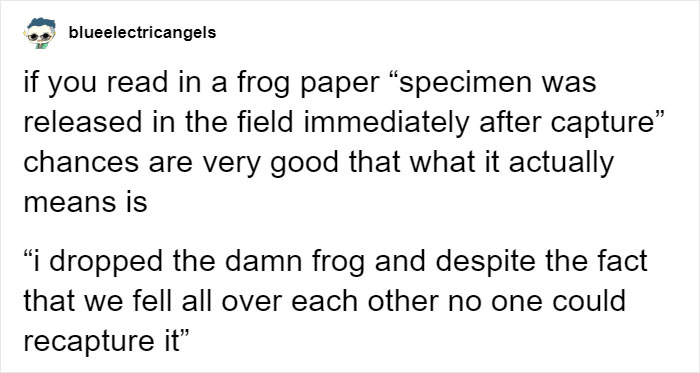

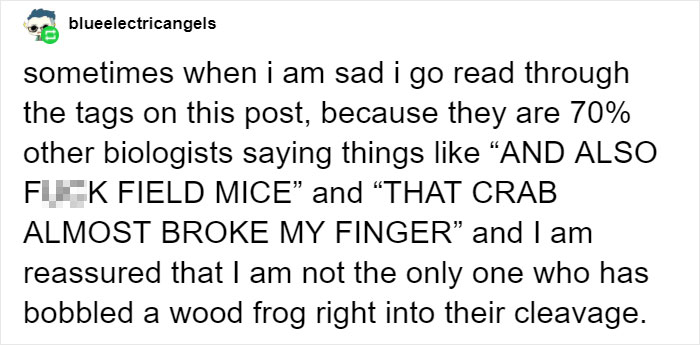
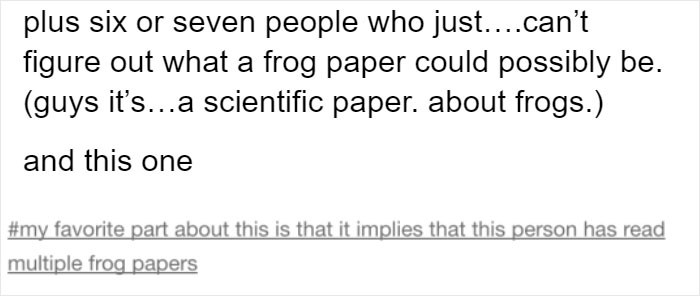

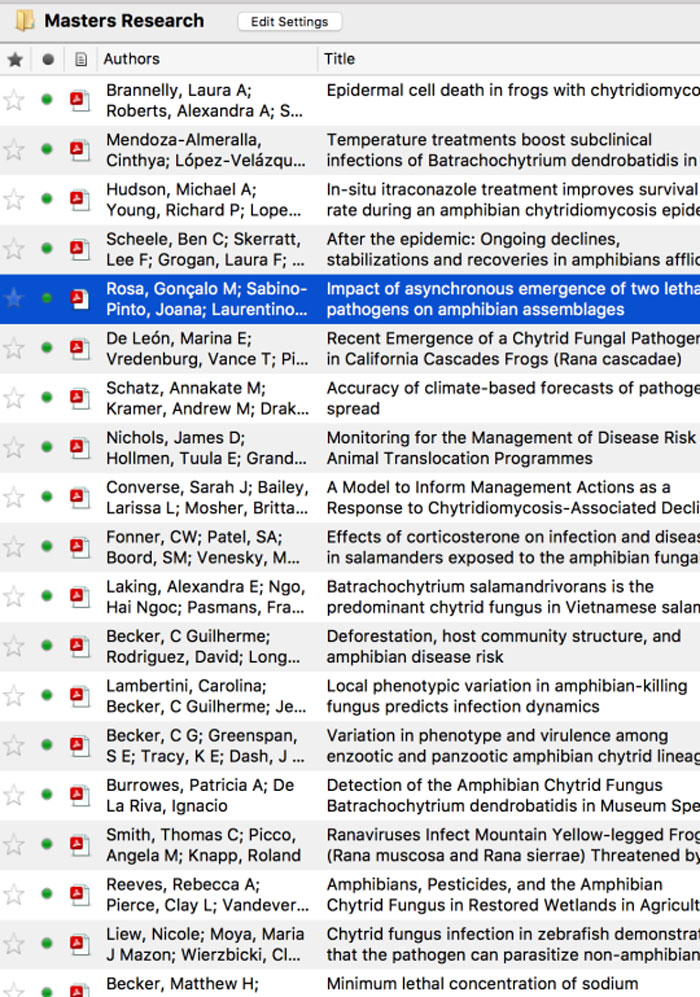

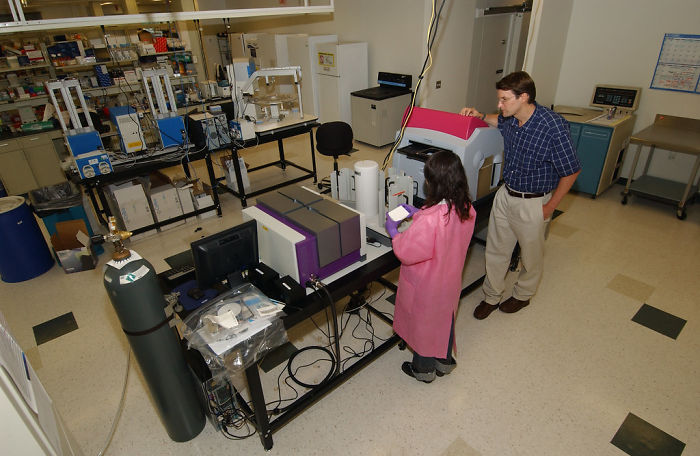







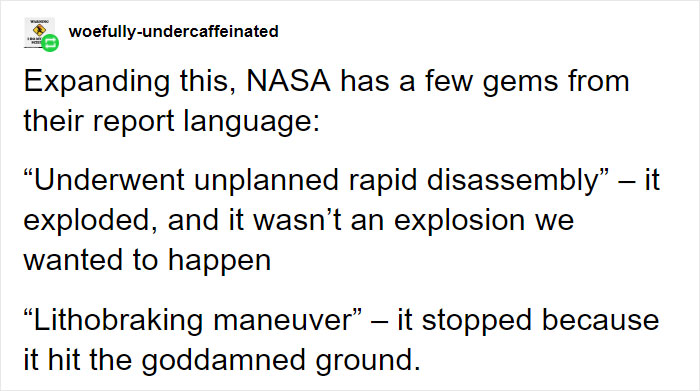
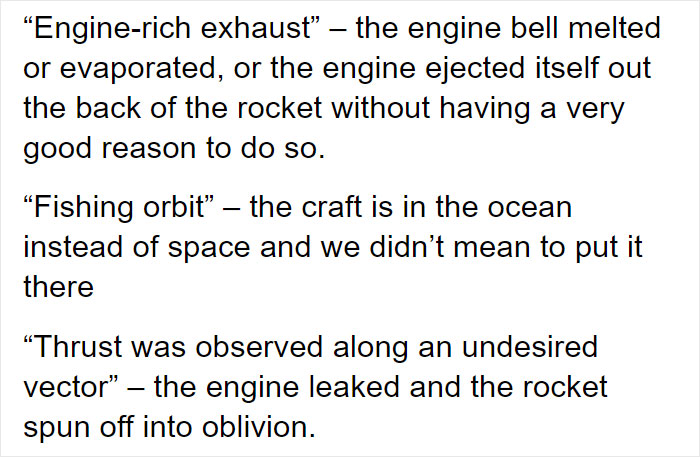
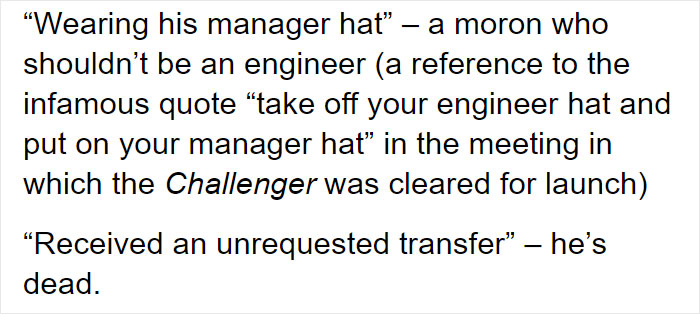



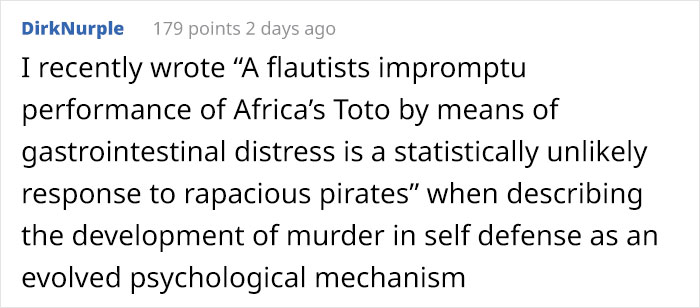
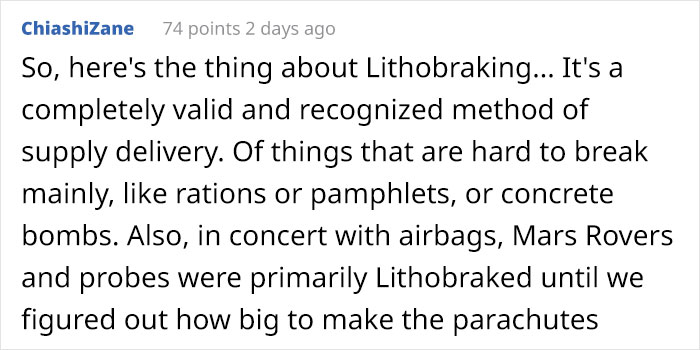












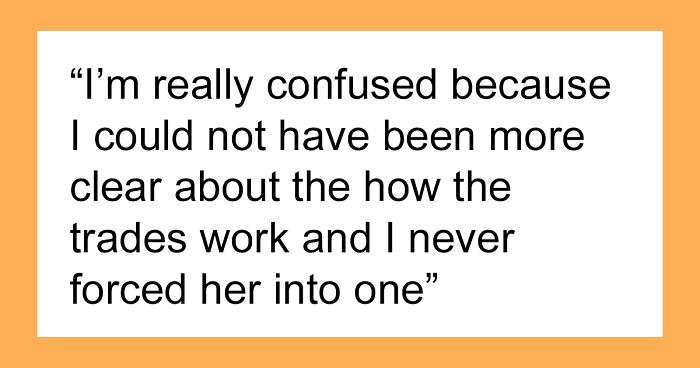

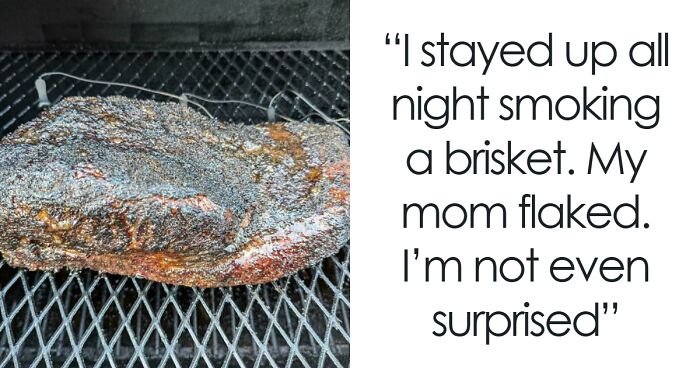









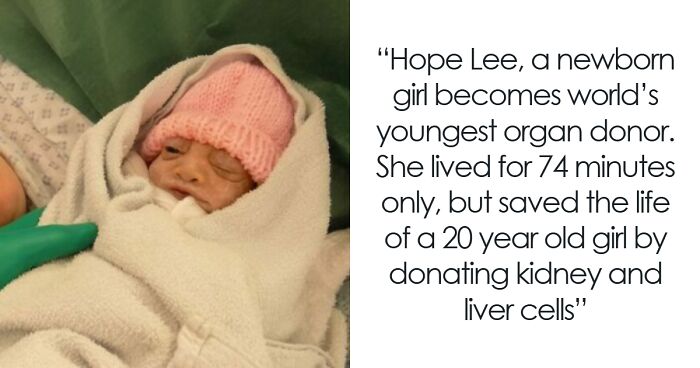

268
33